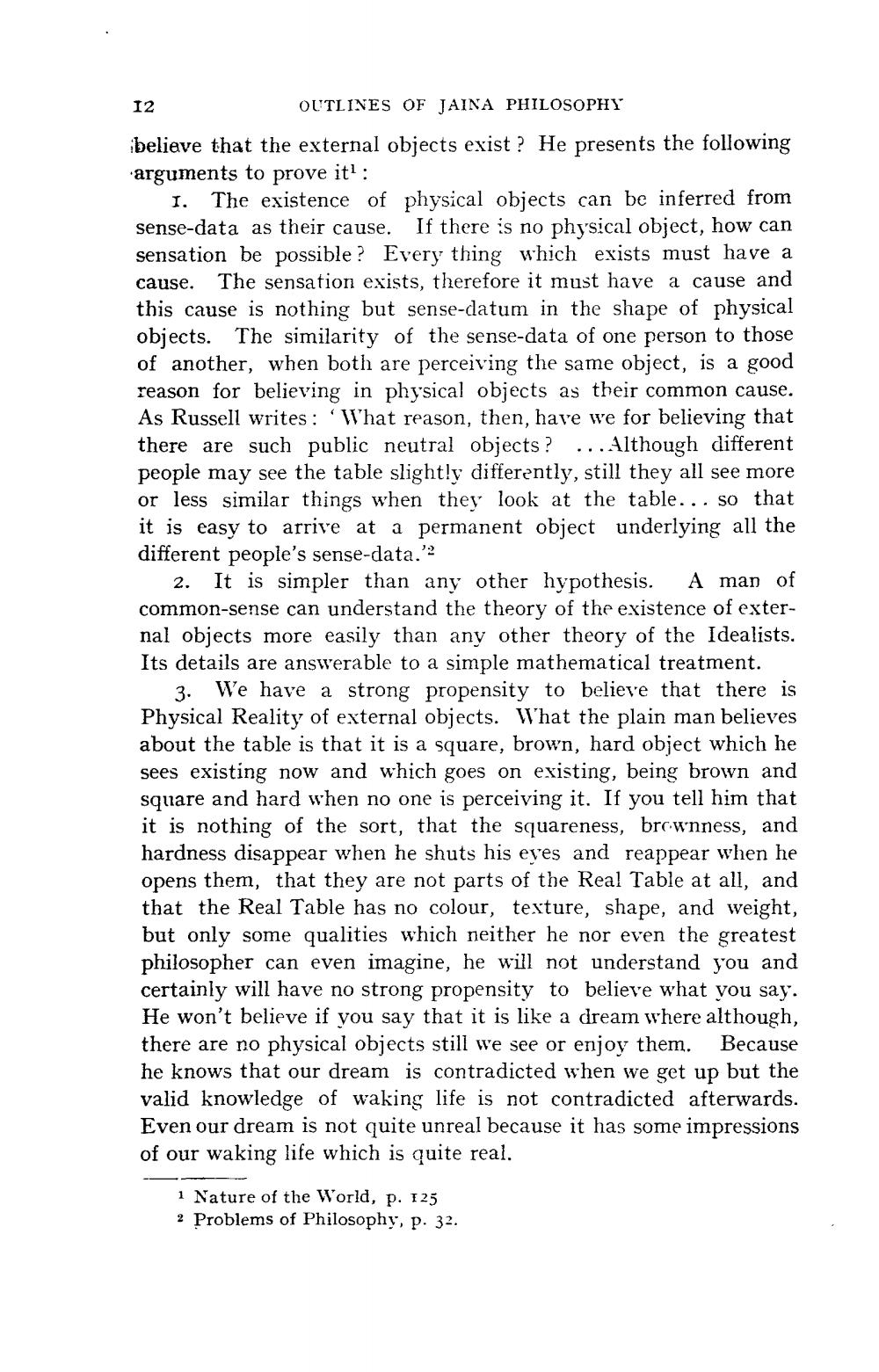________________
12
OUTLINES OF JAINA PHILOSOPHY
believe that the external objects exist ? He presents the following arguments to prove it!:
1. The existence of physical objects can be inferred from sense-data as their cause. If there is no physical object, how can sensation be possible? Every thing which exists must have a cause. The sensation exists, therefore it must have a cause and this cause is nothing but sense-datum in the shape of physical objects. The similarity of the sense-data of one person to those of another, when both are perceiving the same object, is a good reason for believing in physical objects as their common cause. As Russell writes: What reason, then, have we for believing that there are such public neutral objects? ... Although different people may see the table slightly differently, still they all see more or less similar things when they look at the table... so that it is easy to arrive at a permanent object underlying all the different people's sense-data.'
2. It is simpler than any other hypothesis. A man of common-sense can understand the theory of the existence of external objects more easily than any other theory of the Idealists. Its details are answerable to a simple mathematical treatment.
3. We have a strong propensity to believe that there is Physical Reality of external objects. What the plain man believes about the table is that it is a square, brown, hard object which he sees existing now and which goes on existing, being brown and square and hard when no one is perceiving it. If you tell him that it is nothing of the sort, that the squareness, brownness, and hardness disappear when he shuts his eyes and reappear when he opens them, that they are not parts of the Real Table at all, and that the Real Table has no colour, texture, shape, and weight, but only some qualities which neither he nor even the greatest philosopher can even imagine, he will not understand you and certainly will have no strong propensity to believe what you say. He won't believe if you say that it is like a dream where although, there are no physical objects still we see or enjoy them. Because he knows that our dream is contradicted when we get up but the valid knowledge of waking life is not contradicted afterwards. Even our dream is not quite unreal because it has some impressions of our waking life which is quite real.
1 Nature of the World, p. 125 2 Problems of Philosophy, p. 32.




